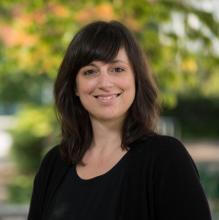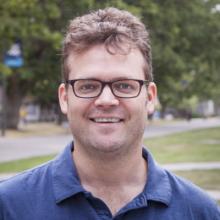Being a Public scholar means innovative and genuine engagement with other scholars and community stakeholders to help solve some of the world’s greatest challenges. It means working with others to take our research from letters on a page to understanding the potential implications and impact on the daily lives of people.
Research Description
Hypertensive disorders of pregnancy are among the leading direct causes of maternal deaths, associated with 46,000 maternal deaths and 500,000 perinatal deaths annually. It is a global injustice that 95% of maternal deaths are from low- and middle-income countries, with a disproportionate burden in sub-Saharan Africa. This points to the critical need to find contextualized ways to reduce adverse outcomes and promote maternal well-being in locally appropriate, strength-based approaches that empower people and target underlying inequities.
My doctoral project employs a human-rights based approach to map the pathways of risk between maternal diet and pregnancy hypertension in sub-Saharan Africa including
- describing maternal dietary patterns and contextual factors,
- investigate dietary patterns associated with a heightened risk of pregnancy hypertension risk and,
- conceptualize and facilitate knowledge translation to effect positive changes in maternal nutrition.
Using community-based qualitative research in Kenya, The Gambia, and Mozambique combined with dietary diversity scores from the PRECISE Network prospective pregnancy cohort, my research highlights the social inequalities that marginalize women and contribute to malnutrition and adverse pregnancy outcomes.
What does being a Public Scholar mean to you?
To me, being a Public scholar means innovative and genuine engagement with other scholars and community stakeholders to help solve some of the world’s greatest challenges. It means working with others to take our research from letters on a page to understanding the potential implications and impact on the daily lives of people.
In what ways do you think the PhD experience can be re-imagined with the Public Scholars Initiative?
The Public Scholars Initiative will help build skills in knowledge translation and public engagement, as well as support an innovative dissemination and intervention co-designing workshop in Kilifi, Kenya with Department of Health stakeholders based on PhD findings. Moreover, it is an opportunity to network with other amazing scholars in the program who I will be able to connect with, be inspired by, and learn from. Within the seemingly overwhelming challenges in strengthening health systems and calling out systemic inequalities, it is important to network with others to build momentum and connections that may be the seeds of future innovative partnerships and ideas.
How do you envision connecting your PhD work with broader career possibilities?
Maternal nutrition has immense effects on healthy infant growth with important impacts on the child's future potential in society and the prevention of intergenerational malnutrition. However, there has been a critical lack of focus on maternal nutrition for women themselves. Working to remedy this missing focus on women’s health outcomes is something I’m very passionate about for both my PhD and future career. My PhD work has opened a number of research questions on further exploring the associations between maternal diets, various forms of malnutrition and placental disorders, as well as helped connect me to other researchers, implementers and stakeholders to develop my career.
How does your research engage with the larger community and social partners?
As part of my doctoral research, I completed a series of systematic reviews to critically evaluate the current state of the evidence between maternal nutrition and pre-eclampsia. I worked with the Preeclampsia Foundation, one of the world’s largest non-profit patient advocacy organizations dedicated to hypertensive disorders of pregnancy, to develop an article on their website summarizing key findings to a public audience. I also work with PRECISE country study teams and Ministry of Health officials to bring research findings back to the communities.
Why did you decide to pursue a graduate degree?
After my Master's degree, I worked and volunteered in action research and global health interventions for six years, fueled by a passion to bring the voices of the most marginalized in societies to the forefront of conversations and reduce the gap between theory and practice. I became especially interested in women's health and rights and found an amazing work family with the PRE-EMPT (https://pre-empt.bcchr.ca/) team based at the Department of Obstetrics and Gynaecology and the BC Children's Hospital Research Institute. When the opportunity arose, I was very excited to pursue a PhD to further work towards tangible change in policies around how the international community views maternal diet and health.
Why did you choose to come to British Columbia and study at UBC?
UBC is a vibrant academic community with wonderful interdisciplinary opportunities. I have been very inspired by the professors, colleagues and fellow students I've had the honour of working with and learning from. I am especially lucky to be mentored by Dr Rajavel Elango, who has been systematically studying nutrition during human pregnancy.




